Introducing 2025-2026 Randall Lewis Health Policy & Public Policy Fellows
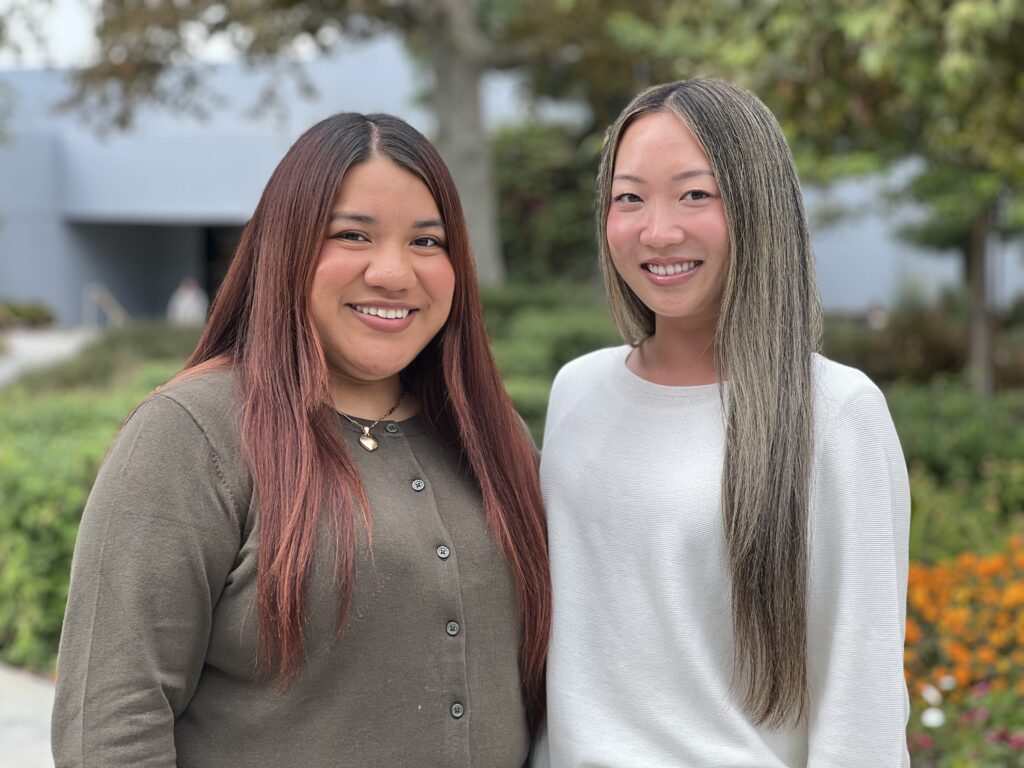
IEHP Foundation is thrilled to welcome Randall Lewis UCR Policy Fellow Jocelyn Escobar (left) and Randall Lewis Health Policy Fellow Stephanie Fang (right).
Champion for Vibrant Health Spotlight: Out of the Ashes

Founded in 2023 and based in Hemet, California, Out of the Ashes emerged from devastating personal loss. Its founder, a longtime healthcare provider, Royer, lost her 18-year-old son, Richard, to a counterfeit fentanyl-laced pill. What began as a mother’s mission to raise awareness has grown into a powerful community organization educating thousands about the dangers of fentanyl and the importance of compassion in prevention.
IEHP Foundation Announces New Members to its Board of Directors
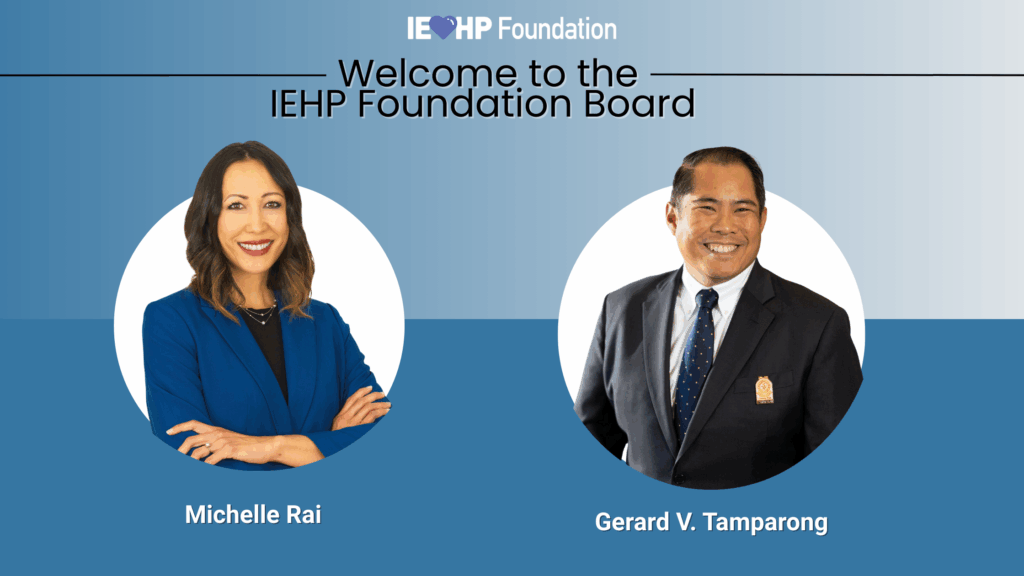
IEHP Foundation recently announced the appointment of Michelle Rai and Gerard V. Tamparong to its Board of Directors, effective immediately. Both individuals bring valuable expertise from their respective fields: Rai in marketing and communications, and Tamparong in financial investment.
Enhancing Fundraising Efforts for a Stronger and Vibrant IE Nonprofit Network
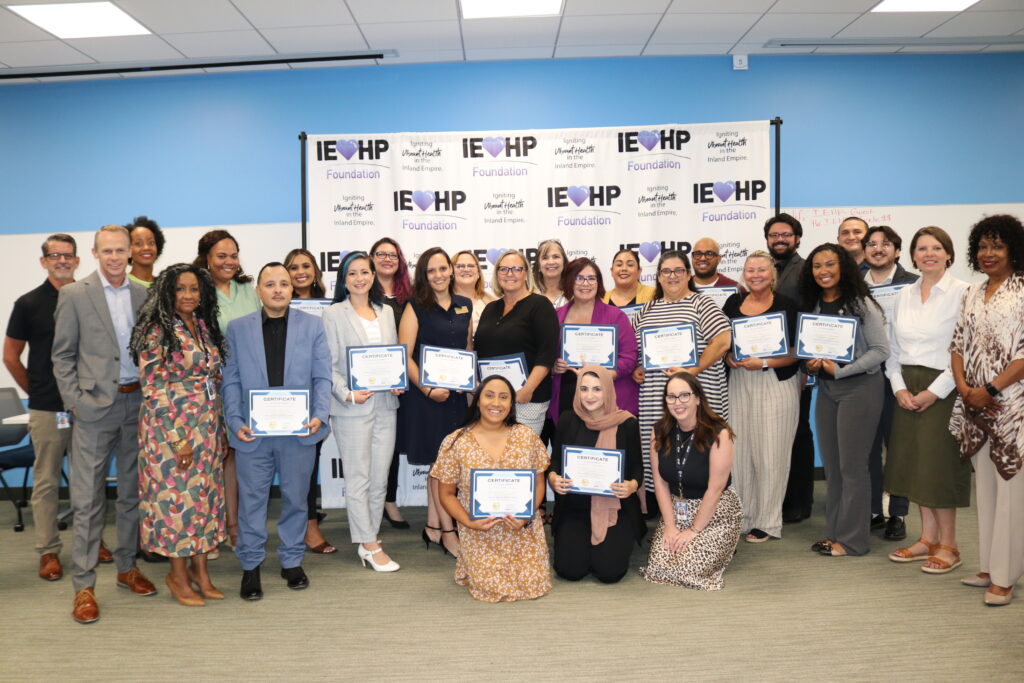
After seven weeks of strengthening nonprofit fundraising and development skills and enhancing best practices and materials, 22 nonprofit leaders celebrated their graduation from the inaugural Vibrant Health Fundraising Cohort.
Strong from the start: Childhood checkups prevent later health challenges
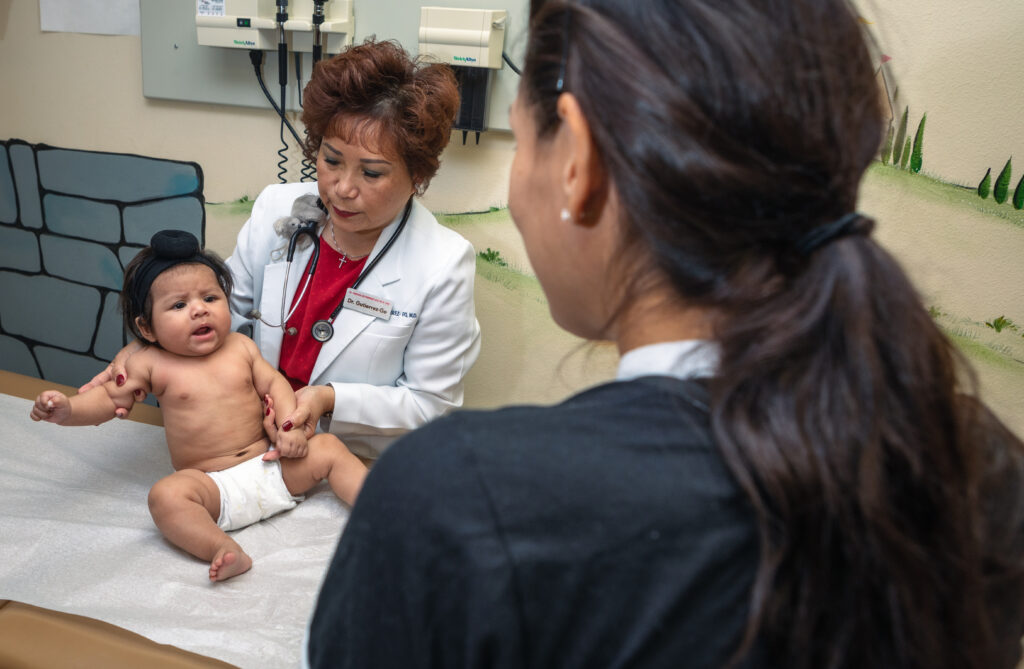
Originally published in The Daily Bulletin on September 26, 2025, part of the monthly series, Inspiring Vibrant Health Column.
Creating a California where our kids can afford housing

California is facing a well-known housing shortage, particularly in the Inland Empire. Originally published in The Daily Bulletin n on August 30, 2025, part of the monthly series, Inspiring Vibrant Health Column.
In response to the urgent need for improved housing availability and affordability, various efforts are underway at multiple levels to increase production across Riverside and San Bernardino counties.
IE Vibrant Health For A Community Centric Approach to Health – Lessons from the Blue Zones

August is National Wellness Month, making it an ideal time to explore evidence-based tips and tools for creating healthier environments at home, in the workplace, and within our communities. Nearly 100 nonprofit and chamber leaders gathered for the IE Vibrant Health Forum: A Community-Centric Approach to Health on August 14, 2025, where they heard from experts affiliated with the Blue Zones Project in Riverside County.
Champion for Vibrant Health Spotlight: Catholic Charities San Bernardino & Riverside Counites

Catholic Charities San Bernardino & Riverside Counties was established in 1980 as a compassionate response to the urgent needs of disadvantaged communities in the Inland Empire. The organization aims to tackle the root causes of poverty and instability, addressing critical issues such as food insecurity, affordable housing, healthcare access, and immigration services.
Introducing the 2025 Summer Vibrant Health Fundraising Training Cohort
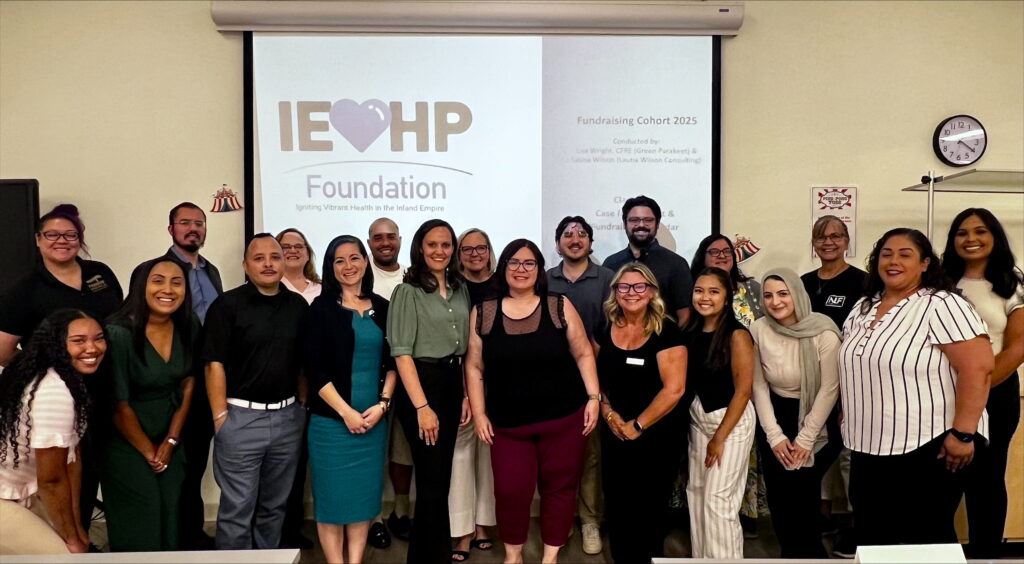
The Inland Empire is home to over 4.6 million residents and rapidly growing in population. Despite its size and potential, the region receives just $25.55 per capita in philanthropic investment, significantly lower than California’s statewide average of $262.99. This disparity highlights a crucial challenge for local nonprofits that are vital in providing essential services and […]
Champion for Vibrant Health Spotlight: Health Career Connection
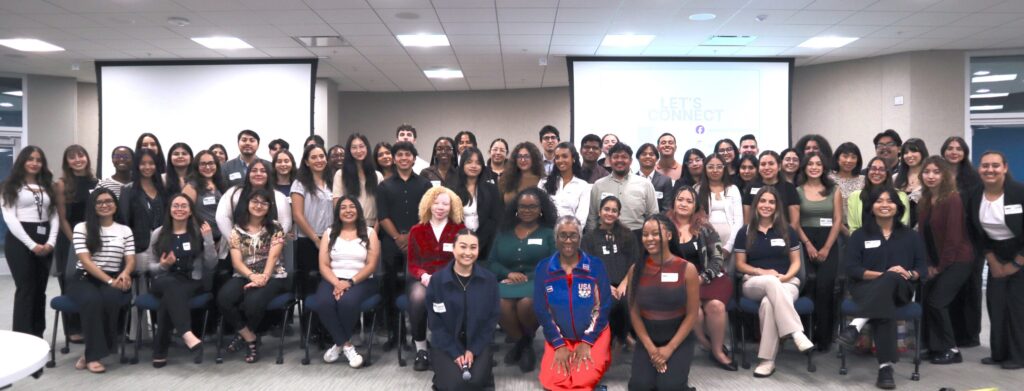
Health Career Connection (HCC) is a national organization with a strong presence in the Inland Empire dedicated to supporting the growth and development of the health, behavioral health and public health workforce. HCC is also participating alongside many of their internship partner organizations in IEHP Foundation’s Champions for Vibrant Health Leadership Network.